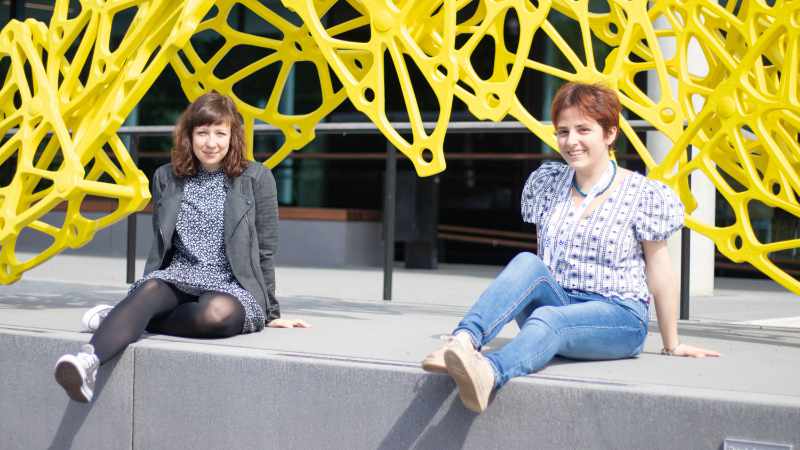Two of seven nominated DIGS-BB PhD students received the DIGS-BB Fellow Award 2020: Julia Vorhauser (Jörg Mansfeld Group) and Laura Celotto (Michael Brand Group) The award honours outstanding PhD students after the 1st year of thesis work and includes a price money of €2,000. It aims to help their research work, development of research skills, and to strengthen their research network. The allowance can be used to cover project consumables, attendance to workshops and conferences, as well as research visits to collaborators’ labs.
An outstanding performance during the 1st year of PhD work, along with a nomination and justification by their Thesis Advisory Committee (TAC) in the 1st AR TAC meeting is required to be eligible for the award. The students presented the current state of their thesis work to the DIGS-BB Steering Committee in writing and in a talk. Detailed information on that work can be found below.
Laura Celotto
“The retina allows us to see the beauty of our world, and it has itself a beautiful structure that is conserved across vertebrates, from fish to mammals. Unfortunately, when the human retina is damaged, the recovery is almost null and severe vision-loss diseases occur. Differently from us, the teleost organism Zebrafish has the astonishing ability to regenerate the structure and function of its retina upon damage. The aim of my PhD is to understand how Zebrafish ensures an efficient retina regeneration, with the long-term hope to restore such ability in the mammalian retina.”
Julia Vorhauser
“From one mitosis to the next one cells grow, duplicate their DNA, segregate their chromosomes, and ultimately divide. All these processes consume energy and therefore, depending on the stage of cell cycle, cells adjust their metabolic rates to provide the needed energy. One readout of cellular metabolism is the intracellular redox balance which in turn, has been suggested to be linked to cell division. However, apart from initial observations it is not clear how the redox balance may regulate cell cycle progression. Therefore, I aim to identify proteins of the cell cycle machinery which are regulated by the redox balance and so determine cell cycle progression. The goal of my work is to reveal how redox balance and cell cycle are linked in non-pathological conditions which may help to understand how cancer cells hijack that redox state – cell cycle link to promote uncontrolled proliferation.”
